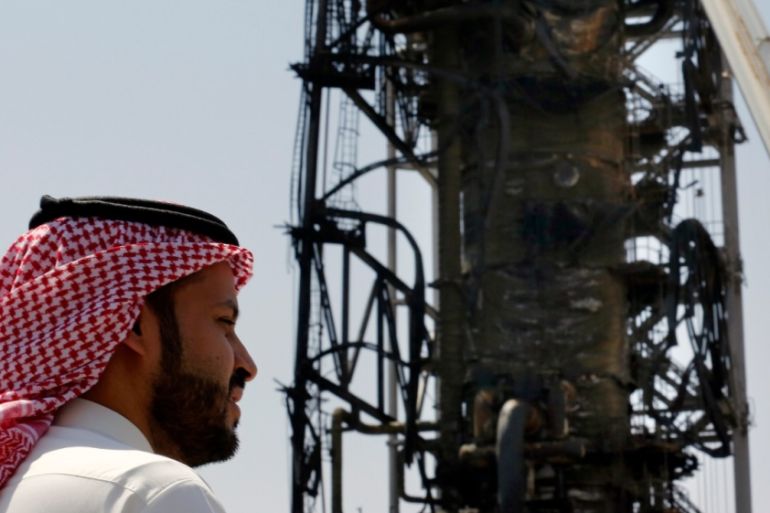Below the bottom of the barrel
Oil-rich countries in the Middle East will find every blip in prices taking a chunk out of their budgets and economies.

Doha, Qatar – For the first time ever, the price of West Texas Intermediate (WTI) crude oil turned negative in New York trading on Monday, falling to a record minus-$40 per barrel. It has rebounded back above zero in Asia on Tuesday, but most traders agree that the downward pressure on prices will remain in place for the immediate future.
All of us covering the energy industry saw this coming, but no one anticipated a spiral this low, this fast.
Keep reading
list of 3 itemsCan the world’s top oil producers save a crashing market?
Will coronavirus get the better of OPEC and its allies?
There’s a perfect storm in the world’s energy markets due to the coronavirus pandemic. Never before have energy markets faced a drop in demand this huge with a spike in production this huge.
No one is flying, very few are driving and leading industrial units are shut down. This means the demand for oil is down by an estimated 30 million barrels, that’s a third of global oil production.
The other aspect came with a self-inflicted glut, with a tiff between the Saudis and the Russians over oil production. Traders fell over each other to fill their super tankers and ground storage with cheap oil (at one point 160 million barrels were stored in offshore super tankers) only to find out that there was no silver lining.
I remember covering the energy markets when oil was trading at more than $150 a barrel. We may be a long way away from reaching a third of that level in the coming years.
|
|
And all this is bad news for oil-producing nations from Africa to Europe.
Oil-rich countries in the Middle East find every fall in prices taking a chunk out of their budgets and economies. A steep drop in prices would hit countries such as Oman and Bahrain – who do not have huge sovereign wealth funds.
But even countries such as Saudi Arabia are not immune. Riyadh has already raised its debt ceiling to 50 percent of its gross domestic product or GDP from last year’s 30 percent. The drop in prices and economic aftermath of the coronavirus, also known as COVID-19, is already eating away at economic growth.
And then there’s the political economy to grapple with. Riyadh’s regional power comes from the oil giant’s towering role in oil production as well as deep ties with global powers.
Saudi Arabia had already hedged its bet with Russia, after years of cooperation on energy and in the end found itself under strained ties with the US.
Even after a prolonged OPEC-plus and a G20 (where President Trump had to be the guarantor for Mexico), the energy markets were not impressed.
In any normal year, the multi-party production cut of nearly 10 million barrels would have reverberated for months. But we live in extraordinary times.